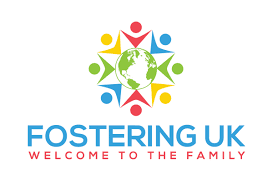Foster Carers in the UK: Nurturing Hope and Creating Bright Futures
Foster parents in the UK are essential in giving children who can't live with their birth families a safe and supportive home. They provide vulnerable children with stability, love, and support, enabling them to overcome obstacles and build better futures. We will look at the vital work that foster parents do in the UK, their credentials and training, the assistance they get, and the difference they make in the lives of the kids they look after in this blog.
The Role of Foster Carers
Foster parents are people or families who welcome youngsters in need of temporary care into their homes and hearts. They offer children who may have undergone abuse, neglect, or other challenging conditions a nurturing and secure environment while also providing them with emotional support, direction, and care. In order to safeguard the well-being and development of the children in their care, foster parents collaborate closely with fostering organisations and local governments.
Qualifications and Training
In the UK, candidates must fulfil specific requirements and go through extensive training in order to become foster parents. The minimum age requirement for prospective foster parents is 21, they must have a spare room in their house, and they must pass stringent background checks and evaluations. Foster parents receive the training they need to address the unique needs of the children in their care, including handling problematic behaviours, identifying trauma, and fostering resilience.
Support for Foster Carers
Fostering agencies in the UK like UK Fostering provide a variety of services to foster carers because they understand how important assistance is. Regular home visits, access to a designated social worker, a 24-hour helpline, educational programmes, and support groups can all be part of this care. Foster parents can network with other seasoned foster parents to exchange stories and tips, creating a solid support system.
The Impact of Foster Carers
Foster parents have a significant impact on the lives of children. Foster parents assist children in recovering from prior traumas, forming healthy relationships, and developing critical life skills by offering a secure and supportive family environment. They assist the kids in their care emotionally, enhance academic success, and work to improve their general well-being. Foster parents are essential in giving these kids new hope and providing them with positive experiences that will impact their lives.
Challenges and Rewards
Foster care has its share of difficulties. Negotiating the complications that come with caring for children who have experienced trauma, takes flexibility, endurance, and resilience. Foster parents might deal with complex family relationships, emotional and behavioural challenges, and the inherent uncertainties of the foster care system. The benefits, nevertheless, are enormous. Foster parents can have a profound effect on a child's life by giving them the chance for stability, love, and a better future. It may be incredibly rewarding for carers to see the development of the kids they are responsible for.
Conclusion
In the UK, foster parents are essential in giving children who can't live with their biological families loving and secure homes. Foster parents provide vulnerable children with the chance to recover, develop, and realise their full potential through their commitment, training, and ongoing assistance. They have a significant impact on children's life and the direction of society. Foster parents cultivate a loving atmosphere that aids children in overcoming adversity and building better futures by modelling compassion, resiliency, and optimism.




Comments
Post a Comment